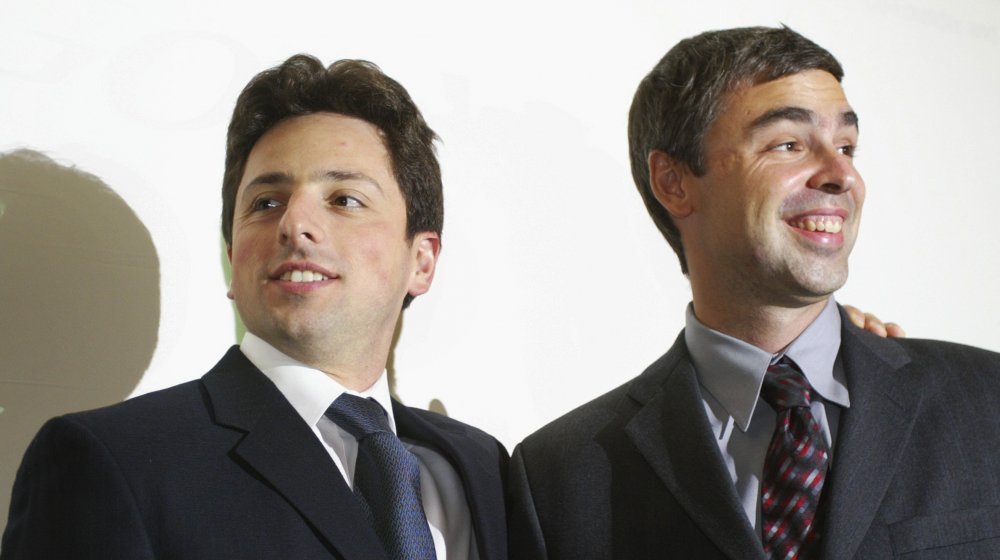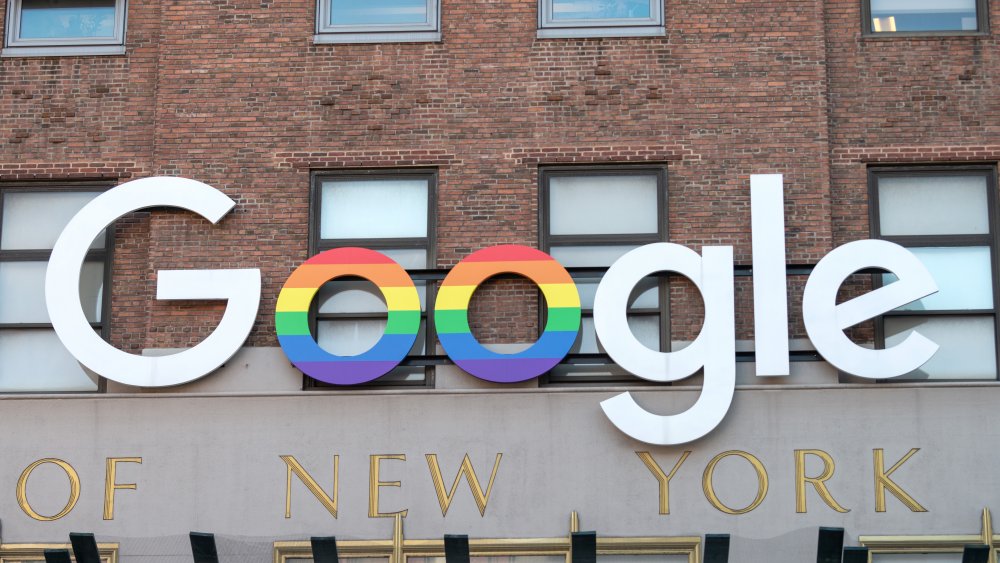Here's How The Founders Of Google Actually Met
Sometimes, a chance meeting can become the most important event in your life. Occasionally, it can change the world, too. That's what happened when grad student Sergey Brin met Larry Page. The two eventually co-founded Google, now one of the largest and most influential technology companies in the world.
Wired reports Brin and Page met at Stanford in 1995. Brin, at the time, was in his second year in graduate school for computer science, and he volunteered to tour potential students. Page, then an engineering student from the University of Michigan, was in this group. Evidently, the two men found each other obnoxious, and argued incessantly about many topics, including — weirdly — urban planning. Nonetheless, despite disliking Brin, Page did decide to go to Stanford. Later, he was in the process of choosing a doctoral thesis topic, and he became fascinated by that newfangled thing called the internet. This, surprisingly enough, led to Brin and Page partnering together, according to Google's own website (yes, Google has a non-search tool website), and they decided to work on a better search engine than what was out there at the time.
The project was, unfortunately, called Backrub. This was later renamed Google, a play on the mathematical expression for the number one followed by 100 zeros.
From strangers to partners
Brin and Page wanted to reverse engineer the World Wide Web as it had been developed by Tim Berners-Lee, the creator of the first website, per Wired. Their idea was that the internet was made up of citations, and Google would rank these citations — and links — and thus organize searches.
They initially set up shop in the garage of Susan Wojcicki, Google employee number 16 and now the CEO of YouTube (which Google owns) before moving to their own offices. The project soon attracted investors, as the Google website explains ... and the rest, as some say, is history. Google is now one of the most powerful tech companies in the world, and the company's economic impact is huge, as their reports show. Now the default search engine for most people, and also a verb synonymous with searching, Google contributed $385 billion in economic activity in 2019.
So, if you ever have the chance to meet someone and you think they might be interesting — even if they seem annoying — take it. You never know, you might become the founder of the next Google.

